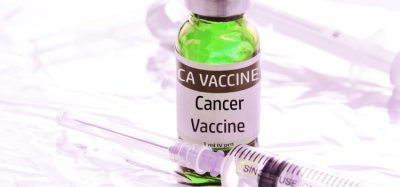AstraZeneca’s COVID-19 vaccine prevents severe disease and hospitalisation in Phase III trials
Posted: 3 February 2021 | Hannah Balfour (European Pharmaceutical Review) | No comments yet
A preliminary analysis suggests the COVID-19 Vaccine AstraZeneca was 74 percent effective after the first dose and 82 percent effective with a 12-week inter-dose interval.
![syringe drawing from a vial labelled AstraZeneca COVID-19 Vaccine [Credit: Juan Roballo / Shutterstock.com].](https://www.europeanpharmaceuticalreview.com/wp-content/uploads/shutterstock_1863086803-750x500.jpg)
![syringe drawing from a vial labelled AstraZeneca COVID-19 Vaccine [Credit: Juan Roballo / Shutterstock.com].](https://www.europeanpharmaceuticalreview.com/wp-content/uploads/shutterstock_1863086803-750x500.jpg)
[Credit: Juan Roballo / Shutterstock.com].
In Phase III trials, the ‘COVID-19 Vaccine AstraZeneca’ was found to be safe and up to 82 percent effective at preventing COVID-19. In addition, more than 22 days after the first vaccine dose, there were no severe cases or hospitalisations reported.
According to the primary analysis, the vaccine was 74 percent effective after the first dose, with protection maintained to the second dose. With an inter-dose interval of 12 weeks or more, vaccine efficacy increased to 82 percent.
Additionally, the analysis suggests the vaccine can reduce asymptomatic transmission of the virus, based on weekly swabs obtained from volunteers in the UK trial. The data showed that PCR positive readings were reduced by 67 percent after a single dose and 50 percent after the two-dose regimen, which could have a substantial impact on the transmission of COVID-19.
The primary analysis for efficacy was based on 17,177 adult participants (aged 18 plus) accruing 332 symptomatic cases from the Phase III UK (COV002), Brazil (COV003) and South Africa (COV005) trials led by Oxford University and AstraZeneca.
Sir Mene Pangalos, Executive Vice President BioPharmaceuticals R&D at AstraZeneca, commented: “This primary analysis reconfirms that our vaccine prevents severe disease and keeps people out of hospital. In addition, extending the dosing interval not only boosts the vaccine’s efficacy, but also enables more people to be vaccinated upfront. Together with the new findings on reduced transmission, we believe this vaccine will have a real impact on the pandemic.”
Professor Andrew Pollard, Chief Investigator of the Oxford Vaccine Trial and co-author of the paper, added: “These new data provide an important verification of the interim data that has helped regulators such as the Medicines and Healthcare products Regulatory Agency in the UK and elsewhere around the world to grant the vaccine emergency use authorisation. It also helps to support the policy recommendation made by the Joint Committee on Vaccination and Immunisation for a 12-week prime-boost interval, as they look for the optimal approach to roll out, and reassures us that people are protected 22 days after a single dose of the vaccine.”
AstraZeneca said data will continue to be analysed and shared with regulators around the world to support their ongoing rolling reviews for emergency supply or conditional approval during the health crisis. The company is also seeking Emergency Use Listing from the World Health Organization for an accelerated pathway to vaccine availability in low-income countries.
In addition to the programme led by Oxford University, the company is conducting a large trial in the US and globally. In total, Oxford University and AstraZeneca expect to enrol up to 60,000 participants globally.
The COVID-19 Vaccine AstraZeneca has already been granted a conditional marketing authorisation or emergency use in close to 50 countries, including in the EU, a number of Latin American countries, India, Morocco and the UK.
The preliminary analysis was published as a preprint in The Lancet.
Related topics
Clinical Trials, Drug Safety, Immunisation, Vaccines, Viruses
Related organisations
AstraZeneca, Oxford University, World Health Organization (WHO)









